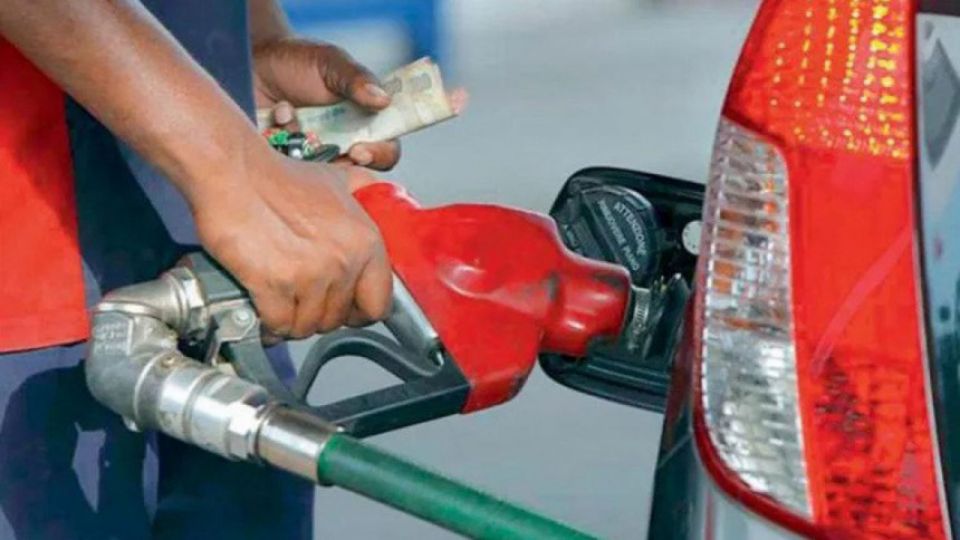August 11, 2022
DHAKA – Bangladesh Petroleum Corporation could have used the Tk 46,858 crore profit it made since 2015 to continue the subsidy on fuel and thus prevent the price hike, the Centre for Policy Dialogue said yesterday.
The BPC could also have offset the losses it has been incurring over the last six months, said the think-tank, asking the government to disclose what happened to the BPC’s profits.
“It was earlier said that the profits were spent on or invested in various development works but we found it to be a delusional claim,” said CPD Research Director Khondaker Golam Moazzem at a media briefing and discussion titled, “Record Fuel Price Hike in Bangladesh: Could It Be Avoided?”
The BPC earned at least Tk 46,000 crore, according to the government, since 2015 and spent only Tk 9,214 crore on 11 self-funded development projects, he said.
It had lost Tk 8,000 crore over the last six months, the energy ministry had said.
Moazzem said, “We’ve learnt from the media that the BPC has at least Tk 25,254 crore in different government and private banks as Fixed Deposit Receipts (FDRs).
“The BPC claims that it invested the money in development projects of the organisation. Is FDR an investment?”
CPD Executive Director Fahmida Khatun said the government could have avoided the unprecedented hike in the fuel prices by checking corruption, theft and mismanagement at the BPC.
She said the government gets up to 34 percent in taxes — in the name of customs duty, VAT and advance income tax — from the BPC. The burden of the duties and taxes levied upon the BPC is passed onto the consumers.
“The government earned Tk 8,540 crore in duty and taxes from the BPC in the last fiscal year and is expecting to get tax revenue worth Tk 9,251 crore this year. If it had reduced these taxes, it could have avoided the price hike.”
In her keynote, Fahmida said that in addition to the revenue from VAT and other taxes, the government realised Tk 10,000 crore from the BPC in FY20 and FY21. The money was a surplus held by the BPC.
“If the government wanted to keep the fuel prices unchanged, it could have either slashed the taxes or used the profits as a subsidy. But they passed the burden onto the consumers, by impacting transportation cost, agricultural, industrial and electricity production cost … ,” she added.
Terming the subsidies an inefficient economic tool, she said, “It was, however, supposed to be withdrawn but in phases.”
Fahmida compared the new fuel prices with those in Nepal, Pakistan, India, Bhutan, Vietnam, Sri Lanka, Thailand, the Maldives, Hong Kong, Germany, the US and Singapore.
“Of the countries, Hong Kong, Singapore and Germany have prices higher than those in Bangladesh. But the GDP per capita of all of those countries is higher than ours.
“Even the diesel price in Vietnam — one of the major competitors in the global RMG market — is much less than ours. Diesel per litre costs them Tk 97 and Tk 106 octane. This will result in a huge difference in the cost of production between the two countries and could affect the garment industries.”
Fahmida also said the decision has increased inflationary pressure and the cost of living. “The fuel price hike will push up the current 7.5 percent inflation and force people to use their savings”.
Energy expert Ijaz Hossain said it would be wise to introduce a pricing policy and adjust the fuel price through Bangladesh Energy Regulatory Commission.
The energy regulator is entrusted with the responsibility and the consumers would be prepared to pay higher prices when prices go up globally.
Similarly, they would get the benefit of lower prices when the global prices come down, he said.
“If India can adjust fuel prices depending on the global market, why can’t Bangladesh? he said.
Ijaz also spoke in favour of withdrawing the subsidies.
“But withdrawing subsidies at a time when the prices of all other necessary products are hiked? The government has no logic and it did not even mention with which international price it had adjusted the new price.”
BKMEA Vice President Fazle Shamim Ehsan said the fuel price hike will have an enormous impact on the industries as it would directly hit the workers’ cost of living. If they leave their jobs due to the increased cost and go to the village, the industries will suffer the most, he said.
Bangladesh Jatri Kalayan Samity’s Secretary General Mozammel Haque Chowdhury said a passenger’s monthly expense for transport would go up by Tk 2,100-6,000.
On August 5, the power, energy and mineral resources ministry announced a record 42.5 to 51.7 percent hike in petroleum product prices.


